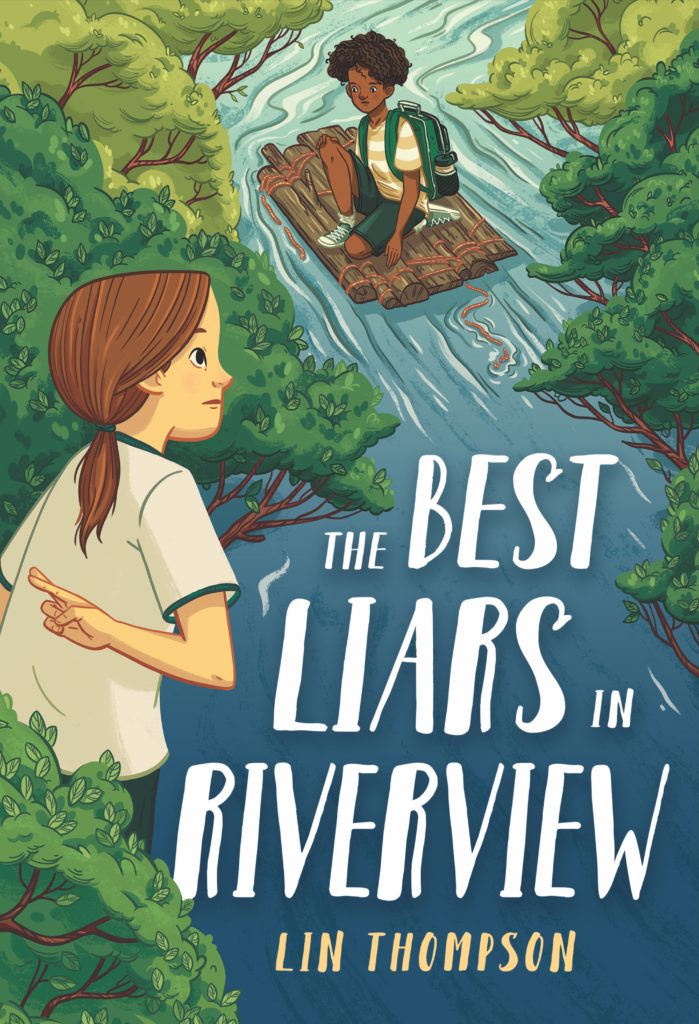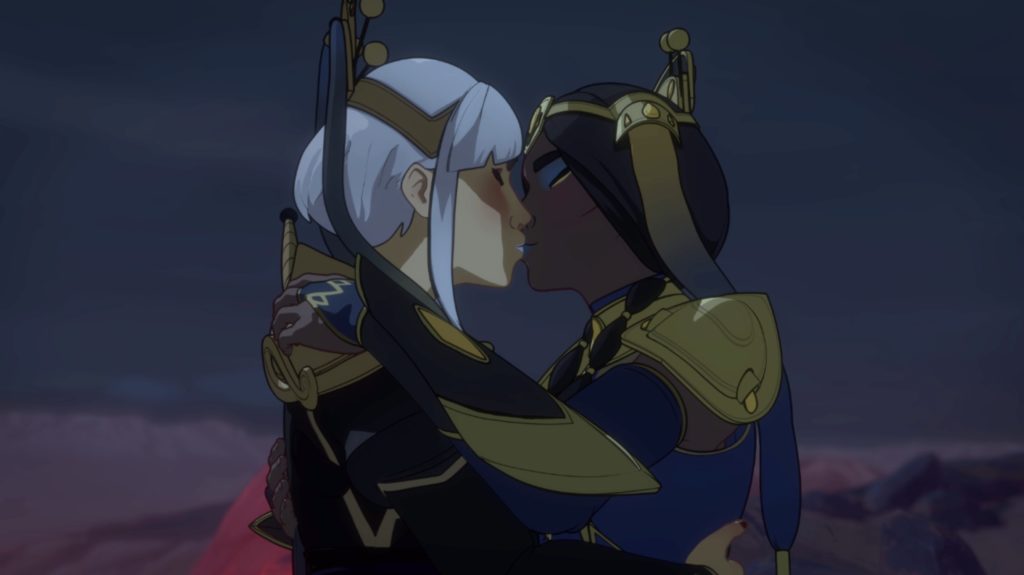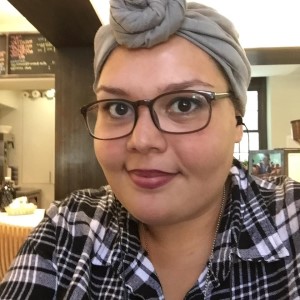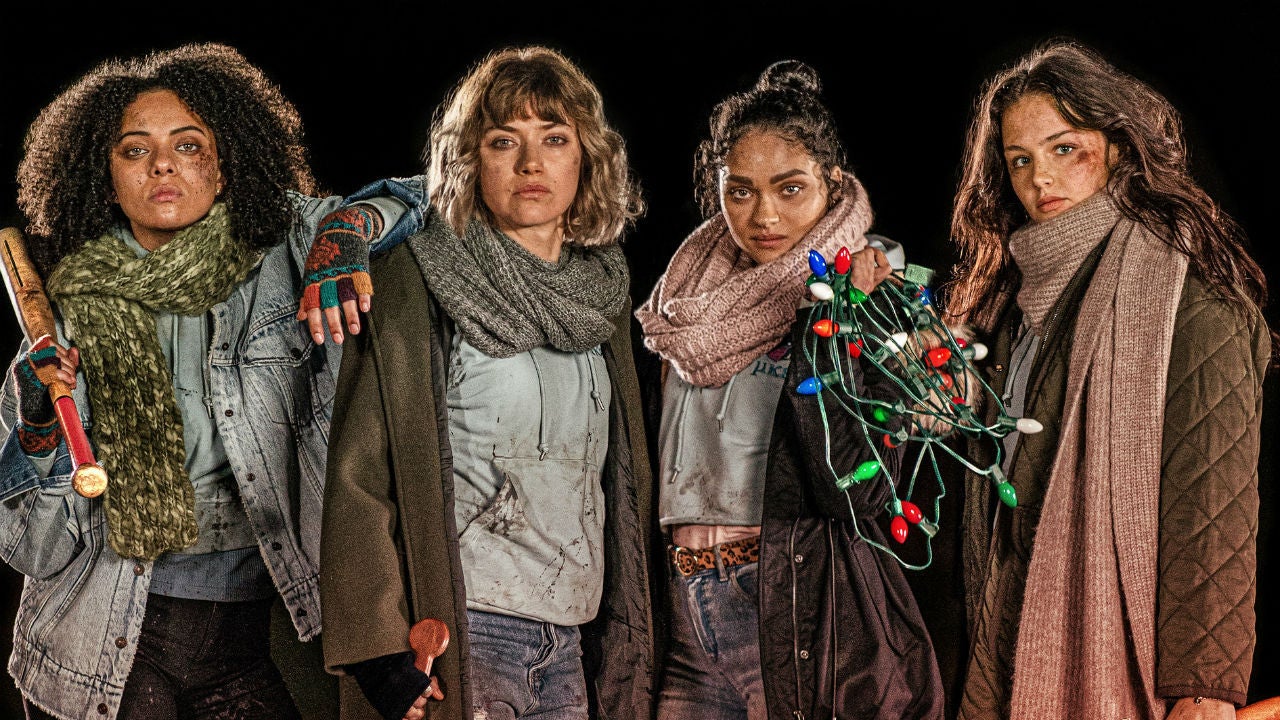Lin Thompson (they/them) is a Lambda Literary Fellow of 2018. An earlier version of this novel was workshopped in Pitch Wars and it also received the Travis Parker Rushing Memorial Writing Award at Emerson College. Lin grew up in Kentucky but now lives in Iowa with their wife and cat.
I had the opportunity to talk to Lin, which you can read below.
First of all, welcome to Geeks OUT. Could you tell us a little about yourself?
Hi! I’m a queer middle-grade author of The Best Liars in Riverview. I grew up in Kentucky and now live in Iowa with my wife and our cat. The pronouns I’m currently most comfortable with are they/them, and I identify as a trans nonbinary person.
What can you tell us about your debut book, The Best Liars in Riverview ? Where did the inspiration for this story come from? Did you draw any inspiration from other author or books while writing it?
The Best Liars in Riverview is about twelve-year-old Aubrey’s journey to find their best friend Joel after Joel has run away from their hometown on a raft the two of them built together. Along the way, Aubrey is piecing together everything that’s led up to Joel running away, and they’re also finding the space to really question their own gender for the first time.
The book grew out of a short story I wrote in college about two kids who want to run away on a raft. I’d been writing lots of stories before that about people wanting to run away from home and start over someplace new, away from the expectations and assumptions of everyone they knew—but it took me a long time to realize why I was so pulled to that idea. It wasn’t until I was starting my own queer journey that I started understanding the discomfort I’d been feeling when the people around me were assuming a gender for me that wasn’t right. The story about the kids and the raft was the one I kept coming back to as I was figuring out these huge pieces of my identity.
On your website, you described this book as “the story of my heart,” writing that “it’s grown and changed as I’ve grown and changed.” Could you tell us what you mean by that?
When I first started working with these characters, I was very early in my own queer journey—just barely even beyond “I want to be supportive of my queer friends” and moving into exploring my own identity. As I started realizing I wasn’t straight, and then later realizing I wasn’t cis, this was the story I kept coming back to and using to work through some of those feelings. I worked on this book on and off for about seven years before I ever started trying to get it published, and when I look back through the older drafts now, I can definitely see each step of my queer journey. In that original short story, the character who eventually became Aubrey was really just trying to figure out how to be a good ally, and then the story shifted with Aubrey having a first crush on a girl, until eventually, it became the version it is now, with Aubrey realizing that they aren’t a girl.
When did you know you were first interested in writing, and what drew you specifically to middle-grade fiction?
I’ve been interested in writing for as long as I can remember. My parents read to me a lot when I was little, and then I read a lot on my own, and I was telling everyone I wanted to be an author when I grew up from at least kindergarten onward. Middle-grade has always been really special to me, because the time in my life when I probably read the most was in middle school, and the books I read during that time have stuck with me in a way no others can. Middle school is such a confusing, transitional, formative time. I don’t remember reading about any openly queer characters back then, but I’ve thought a lot since about how much of a difference it might have made for me if I’d had access to the wide range of queer MG titles available now.
While I was writing Best Liars, I was also working as a children’s librarian, so I was seeing every single day just how important it is for kids to have queer stories available to them. The kids I was working with were always looking for recommendations, and it was so exciting to see the genre keep growing and to keep having more stories to offer them.
How would you describe your writing process?
Honestly, my process is pretty chaotic. On the plotter vs. pantser scale, I’m probably a chaotic plotter—I always want to be organized, and I have to know the story pretty thoroughly before I can really start writing, but I also jump around constantly as I’m writing and very rarely write chronologically or follow the plans I made. I love making outlines, but I also love changing the outline constantly as I go. I spend a lot of time feeling like my brain is trying to hold onto too many pieces of the story while I frantically try to get them into place before I forget them. I was diagnosed with ADHD fairly recently (as I think a lot of us have been—the pandemic really messed with the coping strategies a lot of us had in place before!), and I’ve also been realizing that my process for writing one book doesn’t necessarily work for writing the next one, so I’ve been trying to embrace the chaos and to find strategies that work for me.
Since Geeks OUT is a queer centered website, could you tell us a bit about the LGBTQ+ characters/themes featured in your books?
The main character, Aubrey, is questioning their gender and over the course of the story admitting to themselves for the first time that they’re not a girl. It was important to me that we leave Aubrey in a place of questioning without finding a clear, perfect label for themselves by the end of the book—I like to describe the story as less about finding an answer and more about learning to ask the question. I was definitely in that questioning stage of my queer journey as I was writing—in some ways, I still am in that questioning stage—and I wanted to get to show a character becoming more okay with not knowing exactly the right way to describe themselves, but still being able to accept themselves and find support.
And while Aubrey is looking for Joel, Joel is also doing his own questioning and (minor spoiler, I guess) realizing he’s gay. The characters live in a fictional town in Kentucky, and while Joel has been facing a lot of overt homophobia at school, Aubrey is also picking up on the ways people in their community signal their disapproval of queerness by just never talking about it. I wanted to explore how both those loud and quiet kinds of queerphobia can be damaging in different ways.
What are some of your favorite elements of writing? What would you say are some of the hardest or most surprising for you?
I really enjoy the early stages of a story, when I’m still mulling over all the different parts of it and haven’t put many words down on paper yet. I love how malleable it all feels, and I love the excitement as I figure out each new piece and see how the story can come together. I think that sometimes as I get farther into a story, it’s really easy for me to get stuck on one way of writing it and forget that there are so many possibilities, so I really love the moment when I realize how I can change the pieces to make something work—when I remember that, at the end of the day, the whole story is made up, and I can change whatever I need to make it into the book I want it to be.

The field of LGBTQ+ Middle-Grade literature is slowly, but steadily growing? What are your thoughts on the genre, and can you name any titles that stand out to you?
I’m so excited about how many more queer MG books are coming out every year! I think it’s so important to have LGBTQ+ stories for kids, because again, the middle-grade years can be such a formative time—it’s so important for kids who are figuring out who they are to have a wide range of queer stories to potentially see themselves in. I think Kacen Callender has been truly pushing open the doors for what’s “allowed” in queer middle-grade stories, and I’m so excited for their upcoming Moonflower. Kyle Lukoff’s Too Bright to See had me crying within the first fifty pages because the way the main character experienced gender made me feel seen in a way I’d never been before, even as an adult. Other titles I’ve loved recently are The Best At It by Maulik Pancholy, Almost Flying by Jake Maia Arlow, Thanks a Lot, Universe by Chad Lucas, and This Is Our Rainbow, an amazing anthology put together by Nicole Melleby and Katherine Locke!
What advice might you have to give to other aspiring writers?
Experiment and figure out what works for you! I definitely used to get discouraged by people saying you needed to write every day or that you need to have a certain routine or whatever, because the thing I’m most consistent at is being inconsistent. It turns out everyone’s process is going to be different, and the best thing you can do is figure out how your brain works and how you can best make stories.
Besides your work as a writer, what are some things you would want readers to know about you?
I love baking, embroidery, making music, playing video games, gardening…I tend to cycle through hobbies, picking up new things and doing them obsessively for a month or two before I get bored and move on to the next interest. I also absolutely love being in the woods, and I have a very special place in my heart for the Kentucky woods I grew up around.
What’s a question you haven’t been asked yet but wish you were (and the answer to that question)?
Honestly, I’m very new to being interviewed and these questions have been great! I’ll say that I’m always excited to be asked if I have any pets, because then I get to talk about my cat Nasa who’s allergic to everything and who I absolutely adore.
Are there any projects you are working on or thinking about that you are able to discuss?
I just turned in my revisions for my second middle-grade book, which is about a trans boy and his siblings investigating their grandmother’s possibly haunted house. The main character, Simon, is much more secure with his gender internally than Aubrey is in Best Liars, and I’ve really enjoyed writing about him and his family and exploring the gender euphoria Simon gets from this new name that he’s chosen.
I’m also working on a YA historical fantasy about three queer teenagers in the 1840s who find their way aboard a sailing ship with a majority-queer crew. It’s obviously a very different age group and genre, but with a lot of similar themes around self-discovery and found family. I’ve been really enjoying figuring out how to write in a time period when the language we use now to describe queerness didn’t exist yet, and when even the framework of queerness as an identity hadn’t really come about yet—it’s been challenging but also a lot of fun!
Finally, what LGBTQ+ books/authors would you recommend to the readers of Geeks OUT?
In addition to the MG titles mentioned above, I’m so excited for these books for YA readers coming out this year and next: When the Angels Left the Old Country by Sacha Lamb, We Deserve Monuments by Jas Hammonds, and If Tomorrow Doesn’t Come by Jen St. Jude. Sacha, Jas, and Jen were all Lambda Literary fellows with me, and their writing and characters are all absolutely stunning, so definitely keep an eye out for these queer books in 2022 and 2023!
Header Photo Credit Katherine Ouellette




0 Comments